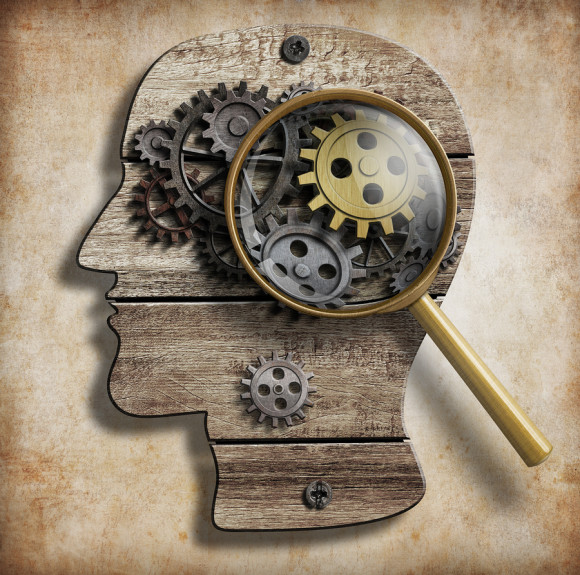In 2021 alone, an estimated 21 million adults and 5 million adolescents in the US experienced at least one major depressive episode. These people’s lives — and, indirectly, those of their loved ones — are touched by the complex and tragically prevalent mental health condition known as depression.
Depression goes beyond just feeling sad or going through a temporary phase of feeling down; it’s a persistent problem that can significantly impact daily life, relationships, and overall well-being. Understanding the signs, types, and treatments of depression is essential for recognizing it in oneself or in others and seeking the appropriate help.
In this article, we’ll explore depression in a deeper way and discuss the importance of therapy as a treatment option. You’ll also learn how Cornerstone Counseling Center of Chicago services can be a valuable step toward depression recovery.
What Is Depression?
Depression is a mood disorder characterized by a persistent feeling of sadness, hopelessness, and a lack of interest or pleasure in activities. It can lead to a variety of emotional and physical problems, significantly affecting a person’s ability to function at work and home. Depression is more than a bout of the blues; it is a serious condition that requires understanding and medical care.
Depression manifests in various forms, each with its unique set of symptoms and challenges. Types of depression include:
- Major depressive disorder (MDD): This is the most common type, characterized by severe depressive symptoms that interfere with one’s ability to work, sleep, study, eat, and enjoy life.
- Persistent depressive disorder (PDD): Also known as dysthymia, this type involves a depressed mood that lasts for at least two years, but the symptoms may not be as severe as those of major depression.
- Bipolar disorder: Previously called manic-depressive illness, bipolar disorder is characterized by cyclic episodes of depression and mania (or “highs”), which can affect one’s mood, energy, and activity levels.
- Seasonal affective disorder (SAD): This type of depression is related to changes in seasons, typically starting in the fall and continuing into the winter months, sapping energy and making you feel moody.
- Postpartum depression: Women may experience this type of severe depression after giving birth, which can hinder their ability to care for their newborn.
Signs of Depression
Recognizing the signs of depression is the first step toward getting help. Common signs to look for include:
- Persistent sad, anxious, or “empty” mood
- Feelings of hopelessness or pessimism
- Irritability
- Feelings of guilt, worthlessness, or helplessness
- Loss of interest or pleasure in hobbies and activities
- Decreased energy or fatigue
- Difficulty concentrating, remembering things, or making decisions
- Insomnia, early-morning wakefulness, or oversleeping
- Appetite and/or weight changes
- Thoughts of death or suicide, or suicide attempts
- Aches or pains, headaches, cramps, or digestive problems without a clear physical cause and/or that do not ease even with treatment
Depression Treatment
The good news is that depression is among the most treatable mental disorders. About 80% to 90% of people with depression respond well to treatment eventually, and almost all patients gain some relief from their symptoms. Treatment usually involves medication, psychotherapy, or a combination of the two. These can also be supplemented with lifestyle choices and strategies aimed at managing depression. Overall, the choice of treatment depends on the type and severity of depression.
Therapy for Depression
Therapy, or psychotherapy, is a crucial treatment option for depression. It involves talking to a trained mental health professional who can help you identify and work through the factors contributing to your depression. Types of therapy that have been proven effective for depression include:
- Cognitive behavioral therapy (CBT): This therapy focuses on identifying and changing negative thought patterns and behaviors that contribute to depression.
- Interpersonal therapy (IPT): IPT focuses on improving communication skills and relationships, which can help reduce symptoms of depression.
- Psychodynamic therapy: This explores how unresolved past experiences and emotions affect current behavior and feelings.
Choosing the right type of therapy depends on your individual needs and situation. A therapist can work with you to identify the most effective approach.
Find Help at Cornerstone Counseling Center of Chicago
If you or someone you know is struggling with depression, it’s essential to seek professional help. Here at Cornerstone Counseling Center of Chicago (CCCOC), we offer a compassionate and supportive environment for individuals dealing with depression. Our team of skilled therapists is dedicated to providing personalized care that addresses the unique needs of each client. By choosing to seek counseling at CCCOC, you’re taking an impactful step toward recovery and mental wellness.
Depression is a serious but treatable condition. Recognizing the signs and understanding the different types and treatments available are crucial steps toward recovery. Therapy, especially, plays a pivotal role in treating depression, offering a path to healing and well-being. If you’re struggling with depression, consider scheduling a therapy session with us. Remember, seeking help is a sign of strength, and with the right support, recovery is within reach.
At Cornerstone Counseling Center of Chicago, we’re a mental health agency providing exceptional counseling and therapy services to individuals of all ages. Our therapists incorporate evidence-based, cutting-edge tools into their work with clients, and every client receives individualized care based on their needs and goals. We have been practicing in the Near North neighborhood of Chicago for over 51 years and are planning to serve our community for many years to come. Schedule an appointment with us today and experience our impact first-hand!



